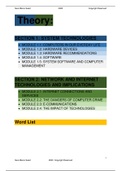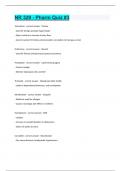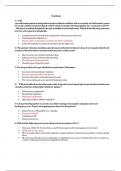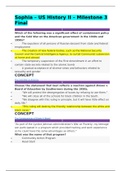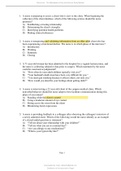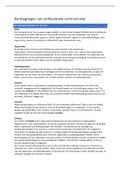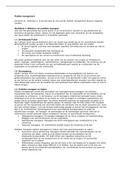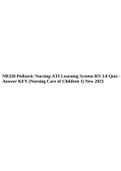Summary
CAT Theory Summary Grade 10 to 12 with a included Word List.(REDUCED FOR FINALS)
- Course
- Institution
- Book
My CAT Theory Summary Grade 10 to 12 with an included Word List. Is a summary that consists of theory from the "Computer part of your life" 2nd edition Grade 10 to 12 and "Digital Classroom Resource" from Cambridge University. This summary consists of all the theoretical work covered in Computer Ap...
[Show more]
